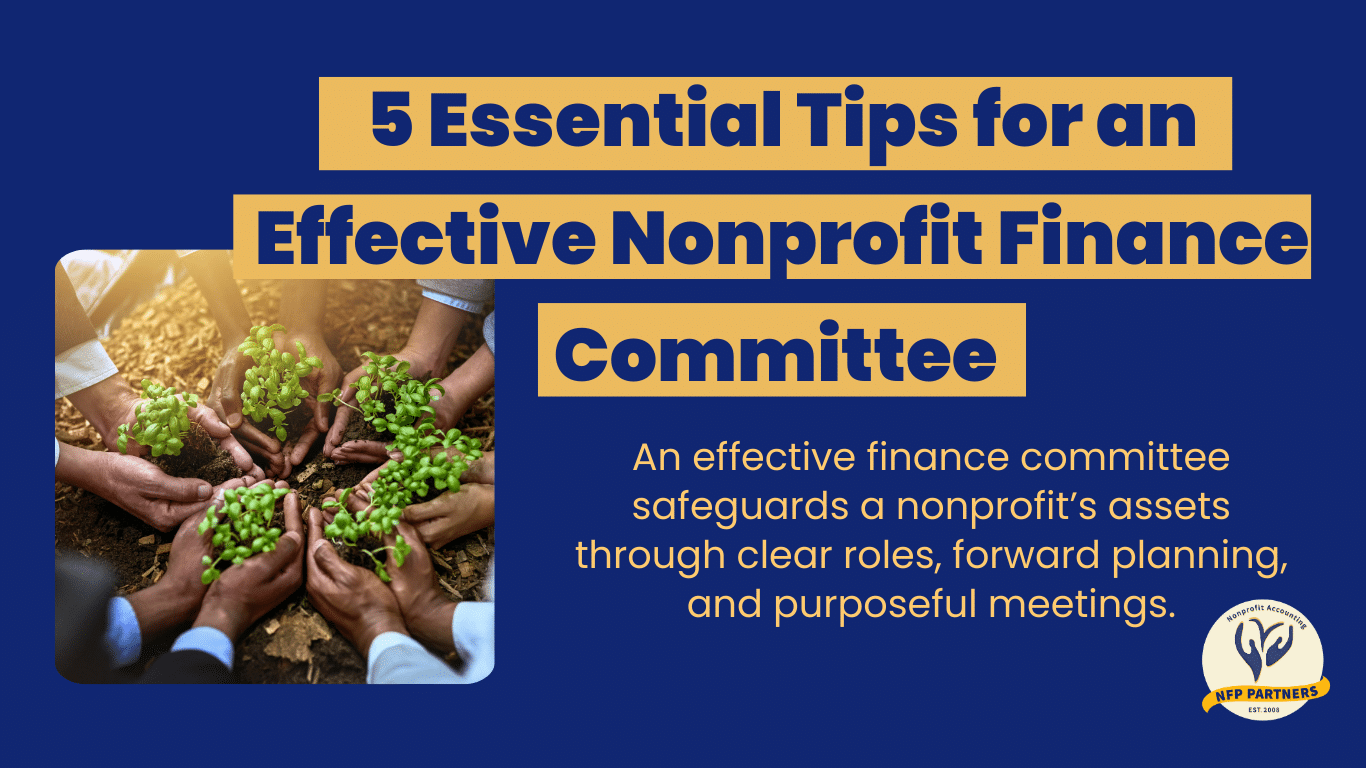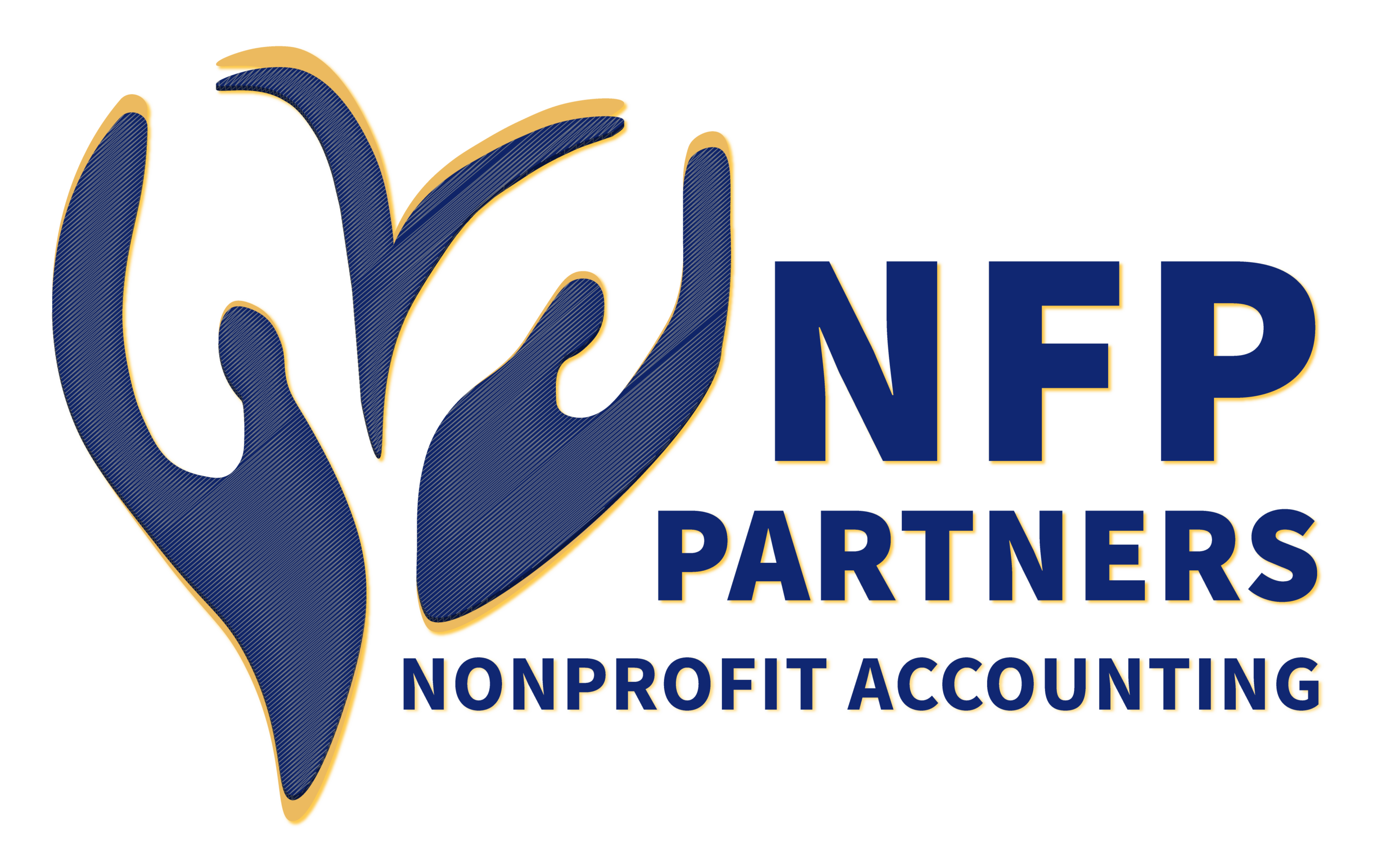5 Tips for a Nonprofit Finance Committee

A strong finance committee is the backbone of a financially healthy nonprofit. It’s more than just reviewing numbers—it’s about safeguarding the mission through responsible fiscal oversight, planning, and strategic decision-making. Whether your organization is large or small, a well-functioning finance committee can make all the difference.
Here are five tips to help your finance committee thrive:
1. Clarify Roles and Responsibilities
A finance committee’s duties should be clearly defined in writing. These often include:
- Reviewing financial statements and budgets
- Monitoring cash flow and reserves
- Overseeing audits and compliance
- Recommending financial policies to the board
When members understand their purpose and scope, they can focus on what matters most—ensuring the organization’s financial health.
💡Pro Tip: Keep a concise “finance committee charter” as a quick reference guide for all members.
2. Ensure Financial Literacy for All Members
Not every committee member will be a CPA, and that’s okay. What matters is that everyone understands key nonprofit financial concepts—such as restricted funds, budget variances, and cash vs. accrual accounting.
Consider providing short training sessions or resources at the start of each year to build confidence and improve decision-making.
💡Pro Tip: Use simple, visual financial reports to make complex data more accessible.
3. Stay Forward-Looking
A common pitfall for finance committees is spending too much time looking backward at past performance. While reviewing monthly or quarterly financials is important, committees should also focus on:
- Multi-year budgeting
- Forecasting future revenue and expenses
- Planning for capital needs or program growth
By looking ahead, the committee can help prevent financial surprises and support long-term sustainability.
4. Collaborate with Leadership and Program Staff
Numbers tell a story—but they’re only part of the picture. Finance committees should work closely with the executive director, CFO, or program managers to understand the context behind the numbers.
Regular collaboration ensures that financial decisions align with program goals, donor expectations, and the organization’s mission.
5. Keep Meetings Purposeful and Efficient
Time is valuable for both staff and volunteers. Create agendas that focus on strategic priorities rather than just routine approvals. Send materials in advance, highlight key issues, and leave space for discussion.
💡Pro Tip: Use a dashboard format to track KPIs such as liquidity, fundraising progress, and expense ratios, so meetings stay results-oriented.
The Bottom Line
A well-run finance committee doesn’t just keep the books balanced—it helps keep the mission strong. By clarifying roles, building financial literacy, planning ahead, fostering collaboration, and running efficient meetings, your finance committee can be a powerful force for impact.
If your nonprofit needs support with budgeting, forecasting, or financial reporting for your finance committee, NFP Partners is here to help. Together, we can strengthen your organization’s financial foundation—so you can focus on making a difference.
